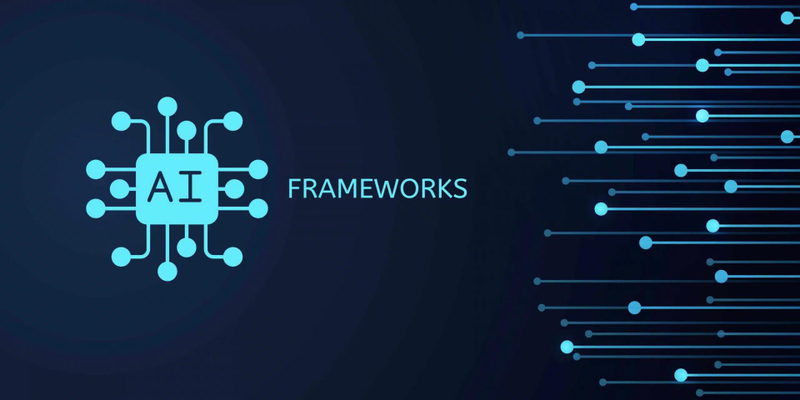In today's rapidly evolving tech landscape, AI-powered app developers are at the forefront of creating intelligent and responsive mobile applications. As you embark on your journey to develop such apps, selecting the right framework is crucial. This guide will walk you through some of the Top AI frameworks, helping you make an informed decision tailored to your project's needs.
Understanding AI Frameworks
An AI framework is essentially a collection of tools, libraries, and interfaces that simplify the development and deployment of artificial intelligence models. These frameworks provide pre-built components, allowing developers to focus on crafting unique features without reinventing the wheel. The right framework can accelerate development, ensure scalability, and enhance the performance of your application.
Top AI Frameworks for Mobile App Development
- TensorFlow: Developed by Google, TensorFlow is an open-source platform renowned for its flexibility and comprehensive ecosystem. It supports various tasks, from training machine learning models to deploying them across different platforms, including mobile devices. TensorFlow Lite, a lightweight version, is specifically designed for mobile app development solutions, ensuring efficient performance without compromising capabilities.
- PyTorch: Backed by Facebook's AI Research lab, PyTorch is celebrated for its dynamic computation graph and intuitive interface. It has gained popularity among researchers and developers for its flexibility and ease of use. PyTorch Mobile extends its capabilities to mobile platforms, enabling the deployment of models on iOS and Android devices seamlessly.
- Keras: Keras is a high-level neural networks API that runs on top of TensorFlow. It offers a user-friendly interface, making it ideal for beginners venturing into AI development. With its modular design, developers can experiment with different neural network architectures efficiently. Keras's simplicity doesn't compromise its power, making it suitable for both simple and complex applications.
- Core ML: For those focusing on iOS applications, Apple's Core ML provides a robust framework to integrate machine learning models into your app. It supports a variety of model types, including neural networks, tree ensembles, and support vector machines. Core ML is optimized for on-device performance, ensuring user data remains private and the app functions efficiently without relying on external servers.
- ML Kit: Offered by Google for Firebase, ML Kit provides a suite of ready-to-use APIs for common use cases like text recognition, face detection, and language translation. It supports both on-device and cloud-based processing, giving developers flexibility based on their app's requirements. ML Kit simplifies the integration of machine learning into mobile apps, making it accessible even for those with limited AI expertise.
Choosing the Right Framework
Selecting the appropriate framework depends on several factors:
- Platform Compatibility: Ensure the framework supports the operating system of your target audience, be it iOS, Android, or both.
- Community Support: A vibrant community can be invaluable for troubleshooting and finding resources. Frameworks like TensorFlow and PyTorch boast extensive communities and documentation.
- Performance Requirements: For applications requiring real-time processing, consider frameworks optimized for performance, such as Core ML for iOS or TensorFlow Lite for Android.
- Ease of Use: If you're new to AI development, frameworks with a gentle learning curve like Keras or ML Kit can be advantageous.
Integrating AI into Your Mobile App
Once you've selected a framework, consider the following steps to integrate AI effectively:
- Define Clear Objectives: Determine what you want to achieve with AI in your app. Whether it's enhancing user experience through personalization or automating tasks, clear goals will guide your development process.
- Data Collection and Preparation: AI models rely on data. Gather relevant data and preprocess it to ensure quality inputs for your model.
- Model Selection and Training: Choose a model architecture that aligns with your objectives. Train the model using your prepared data, ensuring it generalizes well to new, unseen data.
- Deployment: Utilize the chosen framework's tools to deploy the model within your mobile app. Ensure the model is optimized for the mobile environment to maintain performance and efficiency.
- Testing and Iteration: Rigorously test the AI features within your app. Gather user feedback and iterate on the model and its integration to refine performance and user experience.
Conclusion
Embarking on AI-powered app development solutions requires careful consideration of the frameworks and tools at your disposal. By understanding the strengths and capabilities of each framework, you can select the one that best aligns with your project's goals and technical requirements.
If you're looking for the Best free AI app builder to kickstart your project, make sure to explore platforms that offer pre-built AI tools with minimal coding requirements. As AI continues to shape the future of mobile applications, choosing the right framework will be essential in staying ahead of the competition.


